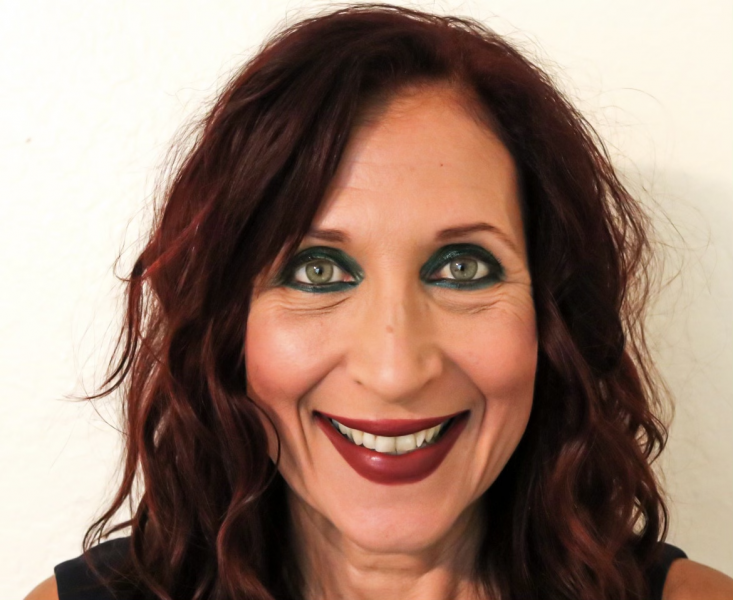Mc Nelly Torres is an award-winning journalist currently serving as editor at the Center for Public Integrity. Based in South Florida, Torres previously spent three years as an investigative producer for NBC6 in Miami. Prior to that, she worked as a consumer watchdog reporter for the South Florida Sun-Sentinel, education reporter for the San Antonio Express-News, government reporter for Morning News in SC and crime and courts reporter for The Lawton Constitution in OK. In 2010, she co-founded Florida Center for Investigative Reporting, the first bilingual digital nonprofit investigative journalism organization in the state. She is also the first Latina to be elected to the board of directors of the Florida Society of News Editors and the Investigative Reporters and Editors. Torres currently serves on the board of the National Association of Hispanic Journalists. She holds a B.A. in journalism from Colorado State University-Pueblo.
What drew you to the field of journalism and how did you get your start?
Several things drew me to journalism and especially investigative journalism at an early age but let me give you the shorter version.
I was born and raised in Puerto Rico, an island territory of the United States, which has always been ravaged by corruption, crime, social inequality and injustices. I was exposed to newspapers early in life, and that’s how I practiced my reading while sitting on my grandmother’s lap. At the time, Puerto Rico had four daily newspapers in Spanish and one in English, The San Juan Star.
But there was an incident that got me hooked: It was after the island experienced its first televised high-profile trial about police corruption and the cover-up of a botched sting operation. Undercover police executed two unarmed young men.
From day one, the government claimed these two men were terrorists on their way to bomb a tower at a top hill known as the Cerro Maravilla. As time went on, investigative journalists began to ask questions and compare the inconsistencies in the case. The island Senate opened an investigation that led to the first televised hearings uncovering gross neglect and murder on the officers part and a massive cover-up by government officials, police, the island department of justice and possibly the federal government. It was the ’80s and I was in high school. I would skip class to watch the Senate hearings on TV. The prosecutor was sharp, charismatic and a camera darling. Ten police officers were convicted of various crimes including perjury, obstruction of justice and other crimes. It was a dramatic time.
Years later, I was at my second newspaper job working as a criminal justice reporter in Oklahoma when I began to delve into the unsolved deaths of several women. My investigation led to FBI involvement and public admission that these deaths seemed to be related — possibly the work of a serial killer.
I spent months (on my own time) going through police records, reading autopsy reports, interviewing experts and the victims’ family and friends. As it happens in so many of these cases, these women had mental health and substance abuse issues, and most of them had been abused. What’s more, the sheriff, who had been in power for some time, had never solved a homicide case. That had also never been reported before. My investigation led to a three-part series I titled “Forgotten Souls” because law enforcement did nothing to investigate these cases, but these victims had family and loved ones who wanted to know what happened to them. The series was published as I was on my way to attend a data journalism bootcamp.
You joined the Center for Public Integrity as an editor in 2021, what strategies have you used in an effort to bring awareness and focus to covering inequality?
I have been involved in several efforts since I began working at Public Integrity in 2021. Collaborations are part of Public Integrity’s DNA but building strong partnerships are important so one of the strategies I’ve used this past year was bringing in Spanish-language media like Univision digital so our stories reach bigger audiences. I’m also big on language and how communities of color are described and portrayed in stories. I don’t subscribe to what the mainstream media has done for decades to these communities. As a woman of color, I’ve seen the damage but also the negative response we journalists get when we walk into these communities. And to be frank, I don’t blame them. In order to cover inequality with dignity and also with fairness we need to have an understanding of the issues. While journalism awards are nice, I don’t write for journalism contests and at Public Integrity we have begun having these discussions. Who are we writing for? We want our supporters to read us, but we also want the communities we are writing about to read us as well.
Given that you are a board member of the National Association of Hispanic journalists, can you tell us more about the work the NAHJ has been doing recently?
Serving as a board member for the National Association for Hispanic Journalists has been very rewarding for several reasons. Our advocacy work has been one of the most rewardings. I’m the chair of the Rapid Response Team which is dedicated to holding media companies accountable. We address pay equity issues, discrimination, racism, abuse of power and harassment among other issues, which are rampant in this industry. Our members reach out to us and we investigate before we publish our statements. We also call it out when we don’t see diversity in announcements of new staff or when that is completely ignored. Our country has been changing for decades and Latinos are consumers like everybody else and they have a huge buying power in this country. Yet we tend to be an afterthought everywhere in this media ecosystem and that needs to change.
In addition, I’m the co-chair of the Investigative and Data Journalism Task Force, whose mission is to address the lack of Latinos in investigative reporting jobs but also in management roles. We can’t change the landscape in this business until we are given a seat on the table where the decisions are made. We created several sub-committees, according to areas of interest, and each group has taken the lead on multiple efforts from the academics to the reporters and the managers.
Most recently, we formed a coalition with our brothers and sisters in other affinity groups and began scheduling meetings with editors and I-teams at news organizations. We also designed a survey to collect data on demographics of investigative teams. We are not done on this effort. I would say that we are just getting started. I’m very proud of all the people who have volunteered to help on all of these efforts from creating training webinars to meeting with editors, we all agree that we need to work together if we want to see some change. I’m confident that the days of the musical chairs games and by that I mean the decades-old trend of seeing the same people moving around getting the same jobs from news outfit to news outfit will finally come to a close. It needs to because it has been a monopoly and we need to crush that to allow more opportunities for journalists of color who are as well equipped as anybody to produce investigative journalism.
Are there any unique aspects of doing journalism-based work in Florida that stands out from the rest of the country?
Florida is an interesting and fascinating place. I’ve always said that if you want to grow as a journalist, Florida is the place for you to do that. We got a little bit of everything here: We got rich folks, segregation and a lot of poverty. Gentrification has been a huge problem in Miami. Take your pick: We got fraud, corruption, money laundering, insane characters, bizarre stories and more crazy weather. Inequality is a huge problem here. I like to stay in touch with the world I cover. From all the places I’ve lived and worked, this place seems to have a little bit of everything. It’s fascinating because of its diversity but it can make you upset at times because of the insanity of it.
What would it have been like to have the Ida B. Wells Society early in your career?
It would have meant the world to me. I worked in newsrooms where I was either the only Latina and/or the only person of color. I didn’t have any mentors who looked like me even in college. I was one of two Latinas in my journalism program and she didn’t speak Spanish. Having an organization as this one that would cater and offer training and support to journalists of color has been a great need for decades. It’s a lonely road when you are out there on your own and lacking the support and knowledge on how to navigate certain spaces. I know it happened to me as I started my career in newspapers in Texas and then Oklahoma.
You have helped train thousands of journalists during your career. What have been some of the biggest barriers and successes that you’ve experienced in the process?
The biggest barrier: not to be taken seriously when I applied for jobs as a trainer here in the U.S. and offered the organization to help them expand their doors to Latin America where I had a track record of training journalists. It was okay when I was doing it for free which I’ve done for years with this group. It’s this kind of bigotted mentality that doesn’t help anybody. Sometimes it only takes one ignorant person who is the sole decision maker. But it happens. The success is when someone you trained reaches out to share this amazing story they produced because they took those new skills and put them to work. I had many of those over the years and also those who are now training others after I trained them. It’s such an inspiration to be part of something positive even after the negative setbacks. You feel like a proud mama.
What do you want to see in the future of newsrooms as they work towards creating a more equitable and accessible environment for all journalists?
Diversity is meaningless without power, equity, and justice. We need to hold newsrooms accountable, demand transparency as part of this process, and work toward solutions that produce change. But more importantly, we need to acknowledge the history of racist and discriminatory hiring in the U.S. media and begin building safe, inclusive and welcoming culture in newsrooms across the country. I’m done talking about diversity because those who don’t understand how important it is at this point, they are not living in reality. Newsrooms need to address the issues I noted because how can you cover all these issues in the community with rigor and integrity and how can you point to problems when you are having the same issues and do nothing to correct them?
What advice would you give to someone just getting started in the field of investigative journalism?
Don’t let anybody take advantage of you. Set your goals and never stop learning. Seek mentors and always try to find ways on how you can improve yourself. Never let anybody tell you that you are not good enough or you can’t do something. Repeat with me: Si se puede! (Yes, you can.)

